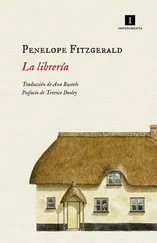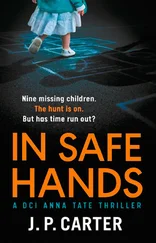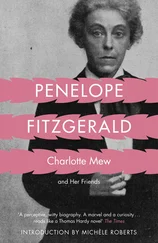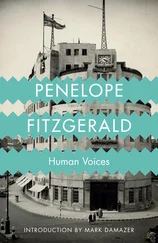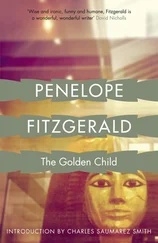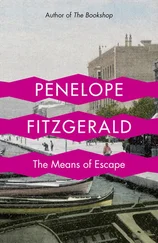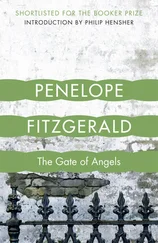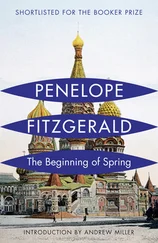It may have set back her career. Her next two novels, though liked, did not receive the appreciation they deserved. Hasty readers and reviewers missed the depths of Human Voices and At Freddie’s: it was too easy to take them only for the dazzling entertainments that in one sense they are. Her ellipses and puzzles often led them to wonder if she had left something out, if the apparent holes in her plots were accidental, but really she intended her readers to work, to solve the mysteries the stories hinge on for themselves. She tried to define Human Voices for the blurb that Richard Ollard was writing, and makes clear its complexity:
It is really about the love-hate relationship between 2 of the eccentrics on whom the BBC depended, and about love, jealousy, death, child-birth in Broadcasting House and the crises that go on to produce the 9 o’clock news on which the whole nation relied during the war years, heartbreak &c, and also about this truth telling business.
The original title, ‘Ten Seconds From Now’, seemed only to refer to the urgency and danger of the times, to the effort of the whole nation to avert evil by upholding the truth, in which Penelope participated as a programmes assistant at the BBC. The preferred title, ‘Human Voices’, taken from Eliot’s ‘Prufrock’, is apt both in its reference to the disembodied broadcasters, and to the pain of young love: for ‘human voices wake us and we drown’. Another poem also underlies the book, as she points out helpfully or unhelpfully to Ollard in the same letter: ‘(Incidentally, as no-one reads Heine I suppose no-one will understand the name Asra, but that’s by the way.)’ Annie Asra, the heroine of Human Voices, like all Penelope’s female protagonists, represents her in some aspects. Heine’s poem ‘Der Asra’ is about a slave slowly dying for love of his mistress. All his tribe, the Asra, in fact die if they fall in love, and Annie is clearly a member of it. The unsuitability of the people we fall in love with is one of Penelope’s themes. She goes so far as to wonder, in one of her novels, whether men and women are ever quite the right thing for each other. However, she certainly believed in love unto death.
At Freddie’s was originally called ‘What! Are They Children?’, but although the precocious boy actors are its ultimate focus, it is also about the theatre and its monstres sacrés, unhappy love, life’s casualties, and the impossibility of teaching children what they don’t require to know, what they don’t already intuit as necessary to them. The teachers in the novel, Pierce and Hannah, quickly realise that it is only their support and kindness that their charges need. It is interesting that their backgrounds in some respects mirror Desmond’s and Penelope’s. Pierce is an Irish Catholic; Hannah is from Ulster (where the Knoxes have their roots). Shakespeare’s ‘King John’, with its murder of innocents, is the play being rehearsed in the book, for Freddie is a serious headmistress. The character derives from Miss Freeston, head not of Italia Conti, where Penelope began her teaching in the early 1960s, but of Westminster Tutors, the eccentric Oxbridge crammer where she was still teaching. However Freddie is given some of the traits and fearsome reputation of Lilian Baylis, the much-loved dragon of the Old Vic, the theatre that flew the flag for Shakespeare in London for so many years.
Penelope wrote to Richard Ollard about the cover design for At Freddie’s:
I wanted a high wall with a broken basket of fruit at the bottom of it, having evidently fallen, one of the Covent Garden baskets. That gives some movement, because it’s evidently fallen from somewhere. I did think of the stage children as to some extent expendable products, like the fruit.
Ollard, the fourth publisher to do so, politely turned down ‘The Poetry Bookshop’ project four times. In the face of Penelope’s lively persistence, which makes for entertaining reading, and with the reduction of its focus to a study of the life of Charlotte Mew, and how it gave rise to her few, haunting poems, in the end he gracefully bowed to the inevitable. She wrote to him as the publication date neared:
the interesting things about CMew are that: 1. she was a poet, otherwise I shouldn’t bother to write about her 2. she was a lesbian 3. she was unhappy 4. she has a curious lifespan as a writer, from the nineties to the 1920s…I fear none of the papers would be interested in an extract about a lesbian who didn’t make it…The interest, to me, is that she’s a divided personality who had to produce so many versions of herself at the same time. Perhaps we all do.
Chris Carduff, in his first assignment as an editor, oversaw the Addison Wesley edition in the US, and sensibly and logically enriched it with a selection of Mew’s poems.
It is curious how many successful writers have been drawn to write wonderful books about unsuccessful ones. Charlotte Mew and Her Friends (but she had so few) is a tragic, deeply literary book, of similar length and structure to her novels. It was her last biography. From now on, nonetheless, all her fiction would include people who had really existed. The two worlds were merging.
In the letters to Richard Ollard, as befitted their flourishing friendship, she discussed freely the upheavals in her life provoked by the decision of my wife and myself to move to the country and bring up our children there. Now she would live between Somerset and London. In Theale she gardened, helped sometimes with Fergus (though she wasn’t terribly good with babies and toddlers; she preferred children to have reached the age of reason), relaxed as much as she ever did, and we hoped that she would be able to write. However she found that ‘I personally can only write in London, I love the noise and squalor and the perpetual distractions and the temptation to take an aircraft somewhere else’, and so Jean Fisher helped her to find a base, at 76 Clifton Hill, St John’s Wood, in the house of a friend of a friend where she lived in ‘a kind of attic, overlooking the tree-tops, with gold wallpaper’. This arrangement worked well until 1987, when her work for the writers’ association PEN International and the Arts Council, her research at the British Museum reading room for her books, and her tireless reviewing, kept her more and more in London, and her daughter Maria and son-in-law John generously agreed to convert the coachhouse of their new house in Bishop’s Road, Highgate for her. They looked after her there for the rest of her life.
During the years at Clifton Hill she was taking her writing in a new direction. An examination of her manuscripts in the Harry Ransom Humanities Center at the University of Texas seems to indicate that, however intense the thought and technique that went into them, her first four novels almost wrote themselves. Her pure fiction is entrancing, but now she was attempting to combine this with the novel of ideas, the metaphysical novel. She had been considering writing about Italy, and specifically Florence, for a decade, the book that after many evolutions became Innocence. An early version of the Ridolfis appears in a first draft, which was to have been about the great Florentine flood, and might even have been intended to be a detective story. It is Francis King she credits with putting her on track: ‘you’ll hardly remember, having been to so many other places since, that you told me the story of the Italian family and their dwarfs yourself’. This cruel legend or parable from the 1560s is retold by Penelope with a wealth of vivid apparently historical detail as the first chapter of Innocence, shedding its mysterious light and darkness over the Shakespearean comedy of tangled loves, with the rumbling of politics beneath, set in a 1950s Italy seemingly known and recreated from within. The Ridolfis of those earlier days were midgets. When their daughter’s companion starts outgrowing her her legs must be cut off at the knees.
Читать дальше
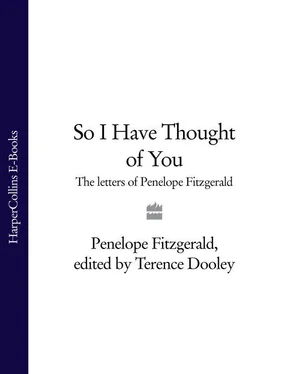
![Ally Carter - [Gallagher Girls 01] I'd Tell You I Love You But Then I'd Have to Kill You](/books/262179/ally-carter-gallagher-girls-01-i-d-tell-you-i-lo-thumb.webp)
